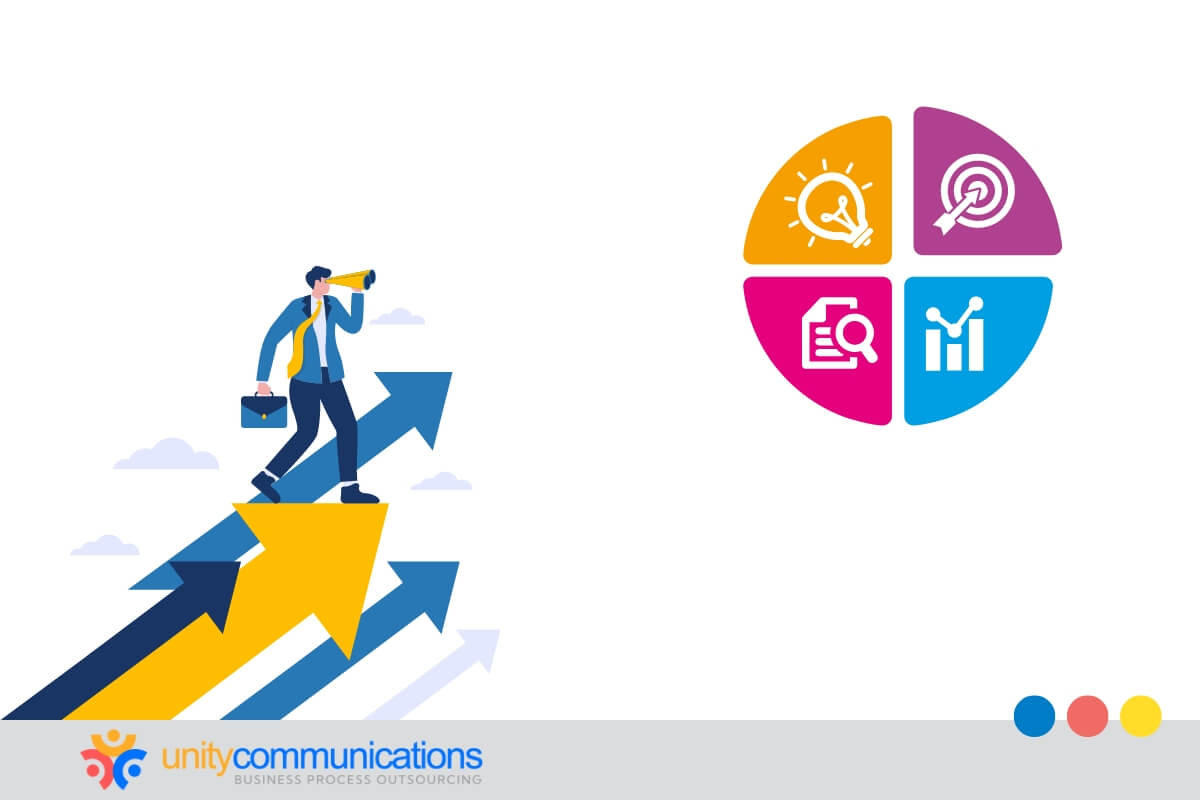IN THIS ARTICLE
Table of Contents
Chief financial officers (CFOs) and decision-makers in small and large enterprises have grown more confident in outsourcing routine finance operations. Thus, business process outsourcing (BPO) for financial planning and analysis (FP&A) is rising among prominent global enterprises.
This uptrend proves outsourcing’s competitive and cost-effective edge. The strategy offers an opportunity to discover extra savings through diverse services and process enhancements, ultimately reducing costs and creating additional value.
Continue reading to learn more about BPO‘s role in financial planning and analysis and how it can help drive business insights.
Role of BPO in financial planning and analysis

FP&A is pivotal in understanding a company’s historical trajectory, current standing, and potential future direction. This function involves scrutinizing the cash flow, ensuring the sustainability of the company’s strategies, forecasting the success of various initiatives, and considering the diverse economic, market, and business conditions affecting the company.
Third-party FP&A teams construct financial models and utilize metrics to assess whether the company’s overall state is positive or negative. Using this evaluation, they can pinpoint projects most likely to succeed by considering each project’s expected return on investment.
FP&A aids management in making well-informed decisions to safeguard the company’s survival and assets. It also indirectly protects the well-being of employees, considering that bankrupt companies cannot sustain a workforce. Here’s a closer look at what BPO can provide the FP&A sector:
- Data entry and cleansing. Outsourcing routine data entry and cleansing tasks can ensure accurate and organized financial data, freeing internal resources for more strategic activities.
- Budgeting and forecasting. Many organizations delegate the preparation of budgets and financial forecasts to external experts who can employ advanced modeling techniques and provide valuable insights.
- Financial reporting. Outsourcing financial reporting tasks, such as preparing periodic financial statements, ensures compliance with reporting standards and allows for timely and accurate reporting.
- Variance analysis. Analyzing and explaining variances between actual and budgeted figures can be time-consuming. Outsourcing this process enables a detailed examination of discrepancies without overburdening in-house team members.
- Scenario analysis. Outsourcing scenario analysis — or evaluating potential future scenarios for their financial impact — can benefit strategic planning and decision-making.
- Financial modeling. A third-party expert adept in modeling techniques and software can create and maintain complex economic models. These include the three-statement, discounted cash flow, and initial public offering models.
- Trend analysis. Monitoring and analyzing financial trends over time is essential for identifying patterns and making informed decisions. BPO teams can provide a fresh perspective on financial planning analysis and ensure thorough examination.
- Cost analysis and optimization. Outsourcing cost analysis tasks can help achieve greater operational efficiency and profitability. These tasks include identifying cost-reduction opportunities and reporting on a product’s projected profit.
- Dashboard and KPI development. Third-party data visualization specialists can create and maintain dashboards with key performance indicators (KPIs) to monitor financial performance effectively.
- Cash flow analysis. Outsourcing the cash flow analysis, including managing working capital and liquidity, can help organizations maintain financial stability.
- Benchmarking. Outsourced benchmarking activities, where the organization’s financial performance is compared to industry standards, can provide valuable insights for improvement.
- Market and industry research. Staying informed about market and industry trends is crucial for effective financial planning. Outsourcing research tasks can help gather relevant data and insights.
How BPO drives business insights for clients through FP&A
BPO organizations can drive valuable business insights for client companies through FP&A by leveraging specialized expertise, advanced technologies, and efficient processes. Here’s how BPO contributes to generating business insights in financial planning and analysis:
- Varied expertise and skill set. BPO providers often have teams of financial experts with diverse skill sets. These professionals bring a wealth of experience and industry knowledge, enabling them to conduct in-depth analyses and provide valuable insights that might not be possible with the client organization’s abilities.
- Advanced analytics and modeling. BPO firms can utilize advanced analytics tools and financial modeling techniques to quickly and accurately analyze large datasets. This capability enables the extraction of meaningful insights, such as identifying trends, predicting future outcomes, and evaluating various scenarios for better decision-making.
- Real-time reporting and dashboards. BPO providers can implement real-time reporting tools and dashboards to provide a dynamic and visual representation of key financial metrics. These platforms enable stakeholders to access up-to-date information and make decisions based on current financial insights.
- Global market intelligence. For multinational organizations, BPO firms can provide global market intelligence by monitoring economic, regulatory, and market trends across different regions. This information is crucial for adapting financial strategies to changing global conditions.
- Advanced technology integration. BPO firms often leverage cutting-edge technologies for data analysis and reporting. Integrating these technologies in FP&A processes enhances accuracy, reduces manual errors, and allows for more sophisticated analyses, driving deeper insights.
Financial planning and analysis technologies used by BPOs

BPO companies leverage various technologies, such as financial planning software, to manage FP&A efficiently. The projected compound annual growth rate (CAGR) for the financial planning software market is 16.85% between 2022 and 2027. The sector is expected to expand by $4.7 billion during this period due to the increasing complexity of financial management.
FP&A technologies are crucial in automating processes, improving accuracy, and providing valuable insights. Here are some key technologies commonly used by BPO companies in performing financial planning and analysis tasks:
- Financial modeling software. BPO companies employ specialized financial modeling software, such as Cube and Jirav, to create detailed financial models. These tools facilitate scenario analysis, budgeting, forecasting, and sensitivity analysis for better decision-making.
- Data analytics and business intelligence tools. BPO providers use advanced analytics and business intelligence tools to analyze large datasets and extract actionable insights. These include platforms for creating interactive dashboards and visual representations of financial data, such as Tableau, Power BI, or Qlik.
- Cloud-based financial planning systems. Cloud-based FP&A systems offer flexibility and scalability. They enable BPO teams to access and manage financial data securely from anywhere, collaborate in real time, and implement updates seamlessly.
- Predictive analytics software. Predictive analytics tools help BPO companies forecast future trends and outcomes based on historical data. These tools contribute to more accurate financial projections and strategic planning.
- Expense management systems. BPO companies use expense management systems to track and manage expenses efficiently. These systems automate expense reporting, streamline approval processes, and provide insights into spending patterns.
- Cybersecurity solutions. Given the sensitivity of financial data, BPO firms invest in robust cybersecurity solutions to protect against data breaches and ensure the confidentiality, integrity, and availability of financial information.
- Robotic process automation (RPA). RPA is employed to automate routine, rule-based tasks within the FP&A process. BPO companies use bots to perform tasks such as data entry, reconciliation, and report generation, improving efficiency and reducing errors.
Why businesses should outsource FP&A
Several reasons justify the use of BPO in the FP&A sector. While outsourcing FP&A activities involves some risks, some companies have reaped significant benefits.
FP&A typically accounts for 23% of financial spending. This high cost is due to the decentralized and customized nature of its processes and the traditionally high expense of skilled labor. Moreover, the decentralized setup of FP&A functions, where analysts work closely with the business, often results in suboptimal cost management.
Outsourcing providers aim to address these issues by standardizing and centralizing processes, effectively reducing the need to have multiple teams involved in various FP&A tasks. Third-party vendors can also cut costs by centralizing their workforce in inexpensive locations, taking advantage of labor arbitrage.
These vendors are investing substantially in FP&A as a strategic avenue for future revenue growth. They focus on developing tools, processes, and methodologies to distinguish themselves in the market and enhance operational efficiency.
The intensifying competition among outsourcing vendors, including new entrants in the FP&A marketplace, underscores the industry’s commitment to innovation and differentiation.
The bottom line

BPO contributes significantly to generating business insights through FP&A by combining financial expertise, advanced analytics, and efficient processes. This collaborative approach helps organizations make data-driven decisions, enhance financial performance, and stay competitive in dynamic markets.
Before outsourcing any FP&A task, it’s essential for organizations to carefully assess their specific needs, choose reputable outsourcing partners, and establish clear communication channels to ensure the success of the outsourcing arrangement.
Let’s connect if you want to learn more about BPO and its contribution to the FP&A sector.





